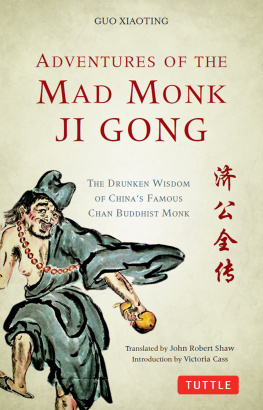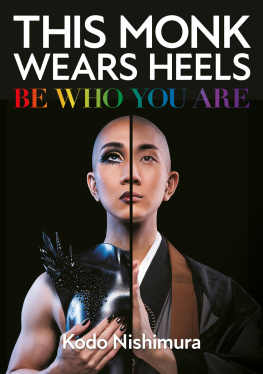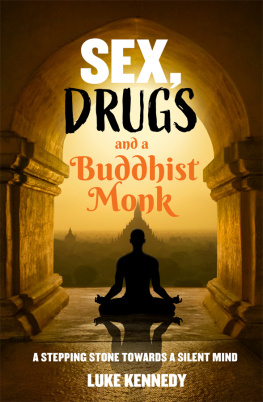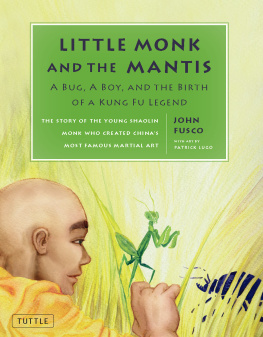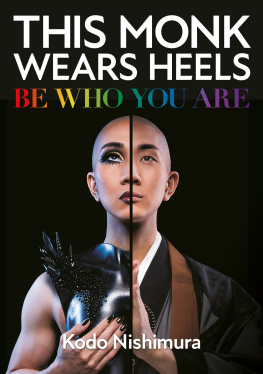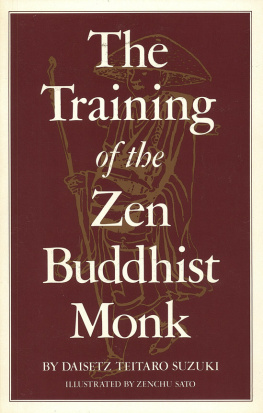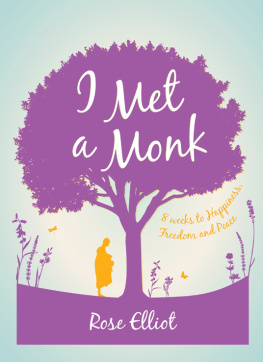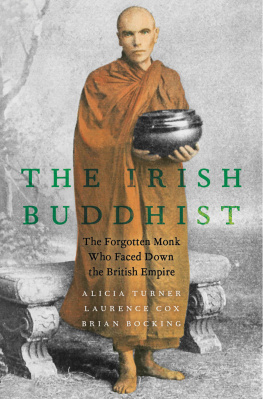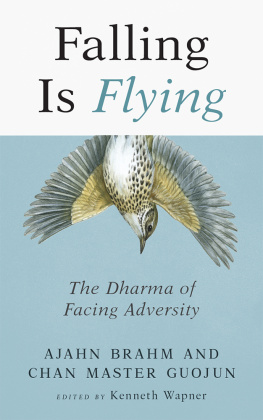About the Translator
John Shaw during his twenty year U.S. Marine Corps career served part of that time as a Chinese/Japanese/Korean interpreter. He was stationed in China for two tours totaling six years and visited China twice after those tours. During his first visit he came across the tales of Ji Gong in a bookstore. After scanning the book, he bought a copy having decided it would be interesting to read. He read the entire book and then thought it would be enjoyable to translate the first half. He immersed himself in this project at a leisurely pace over several years.
Publishers Note
During the process of translating this classical Chinese work, John Shaw was fortunate to have the invaluable expertise and input of his wife, Mrs. Sara Janet Shaw, a former professional editor, in all editorial matters. Together they worked as a team to make this manuscript highly accessible and interesting for English readers.
Acknowledgments
T HE Publisher and Mrs. Sara Janet Shaw would like to thank all who helped to make this publication a reality, especially Hsiao-liang (Luke) Chen, PhD, for generously sharing his knowledge of Chinese social history and the intricacies of the Chinese language; Lori L. Crouter, Dorothy Darrah, Marianna Gellert, Adam Goold, Judith Jones, Milton Levitt, Andrew Little, Donald E. McNeil, Sarah Wight, Arija Weddle and Bruce Weddle, for various forms of assistance.
Mr. Shaw would also have wanted to express his appreciation to Mr. Cal Barksdale, ex Senior Editor of Tuttle Publishing, for recognizing the worth of the translation. His advice and assistance were invaluable. A note of appreciation also goes to Bud Sperry and William Notte of Tuttle Publishing for assistance in the final stages of publication of the book.



CHAPTER 1
Military Finance Officer Li visits Buddha and begs for a son; an immortal lohan descends to earth and begins anew the cycle of reincarnation
T HE patchwork robe made for Guang Liang, the newly elected superintendent of the monks at the Monastery of the Souls Retreat at Linan, was placed on display before daybreak. It was arranged on a high-backed armchair placed on a low platform to the west of the altar before the huge statue of the boddhisatva Guan Yin. In the morning when the sun shone through the door, it illuminated each scrap of precious brocade and every bit of exquisite embroidery with the unusually fine stitching that made the robe a dazzling ceremonial vestment.
The monks had begged for these scraps at the gate of every great family in Linan, the twelfth-century capital of the Southern Song Dynasty of China.The monastery was the most important temple in the empire and, as the monks explained, Guang Liang would some day almost certainly become its abbot when the old abbot was no more. People had gladly contributed not only material, but also money for the sewing, which was done at the finest shop in Linan.
In the first two hours of its showing, most of the monks, with the exception of the abbot, had seen the robe. Soon wealthy matrons would be pointing out their bits of brocade to their friends, but before that could happen, the robe suddenly disappeared. No one knew where it had gone, but all the monks guessed that Dao Ji, the Chan (Zen) monk, had taken it, and he was missing.
Who was this Dao Ji? He was the son of a military officer, Li Maoqun. Li was usually addressed as Li Yuanwai. Most respected gentlemen were called yuanwai in the time of the Southern Song Dynasty. In the fourth year of that dynasty (1131 C.E.), Li was living not far from the capital Hangzhou, more commonly called Linan in those times.
Li was registered as a native of the Tiantai district in Taizhoufu, a prefecture in the east-central portion of the province of Zhejiang. His wife was called Wang Shi, meaning a wife from the Wang family, since women usually continued to be called by their maiden names after marriage.
This couple loved the virtuous life. Li Yuanwai was extremely kind to others and not unduly severe toward the soldiers he commanded. Because of this, his reputation as a good officer was widespread. At home he was pleasant and generous, and outside his home he helped those in danger and relieved those in distress with padded clothing in winter and draughts of medicine in summer. When Li Yuanwai walked along the street, people generally called him Virtuous Li, but a few among them disagreed, saying, If he is truly virtuous, why is there not a son?
Li Maoqun overheard this talk, so later, when his wife saw him come home sad and dejected, she asked why he was unhappy. Her husband said, When I was strolling in the street, almost everyone was calling me Virtuous Li, but among them there were some who said privately, but so that I could hear, that, if I were truly good it would not be possible for me to be without a son. I think that heaven has its spirits and the Buddha has his spirits, and if we ask, it is in their power to permit us to have a child.
Why not take a second wife or buy two concubines and have a son and a daughter? urged his wife.
Her husband said, Oh, my wife, it is wrong to say such words. How could I do such a stupid thing! My wife, you are only approaching forty. You can still give birth to sons or daughters. You and I will purify ourselves by fasting and bathing for three days and then go to the Guojing temple on Tiantai mountain, beyond Yongning village. There we will worship Buddha and beg for a son. If heaven above has eyes, you and I, husband and wife, may still have a child.
Very good, said Wang Shi.
Li Yuanwai selected a date, and with his wife riding in a cart while he rode a horse, they and their party of servants reached the foot of Tiantai mountain. They looked up at the mountain rising up to meet the clouds, its peaks standing erect, the dense forests and the Guojing temple halfway to the top. When they reached the outside of the temple, they saw how large and high the monastery gate appeared. Inside there were two towers, one for the drum and one for the bell. Just beyond was the purification hall for the guests, the hall for reading the sutras or scriptures of Buddhism, and a large building with twenty-five rooms for storing the complete religious library of Buddhism, the Tripitaka .
Li Yuanwai got down from his horse. From within, the monks came out to greet the couple. At the great hall they were offered tea. The master of the temple, old Abbot Gong, came himself to welcome them and took them to each place where they were to burn incense. Husband and wife first went to the imposing Hall of Treasures and prayed. They knelt to ask the immortal Buddha to bless them, saying, As we renew the incense, teach us a thousand times ten thousand times that we may have a son. If Buddha, the founder, will manifest his spirit, we will make extensive repairs to an old temple and fashion a golden image. This is our prayer. On they went, burning incense at each place.
When they reached the Lohan Hall, containing images of lohan (disciples of Buddha), they also burned incense. When they were standing in front of the fourth lohan , they saw the image slip from its pedestal. Since the words fall to earth when used by Buddhists also means be born into the world, the senior priest Gong said, Your prayer is an swered! Your prayer is answered! You will certainly have an honorable son. When the day comes, I will come to wish you happiness.
Next page
